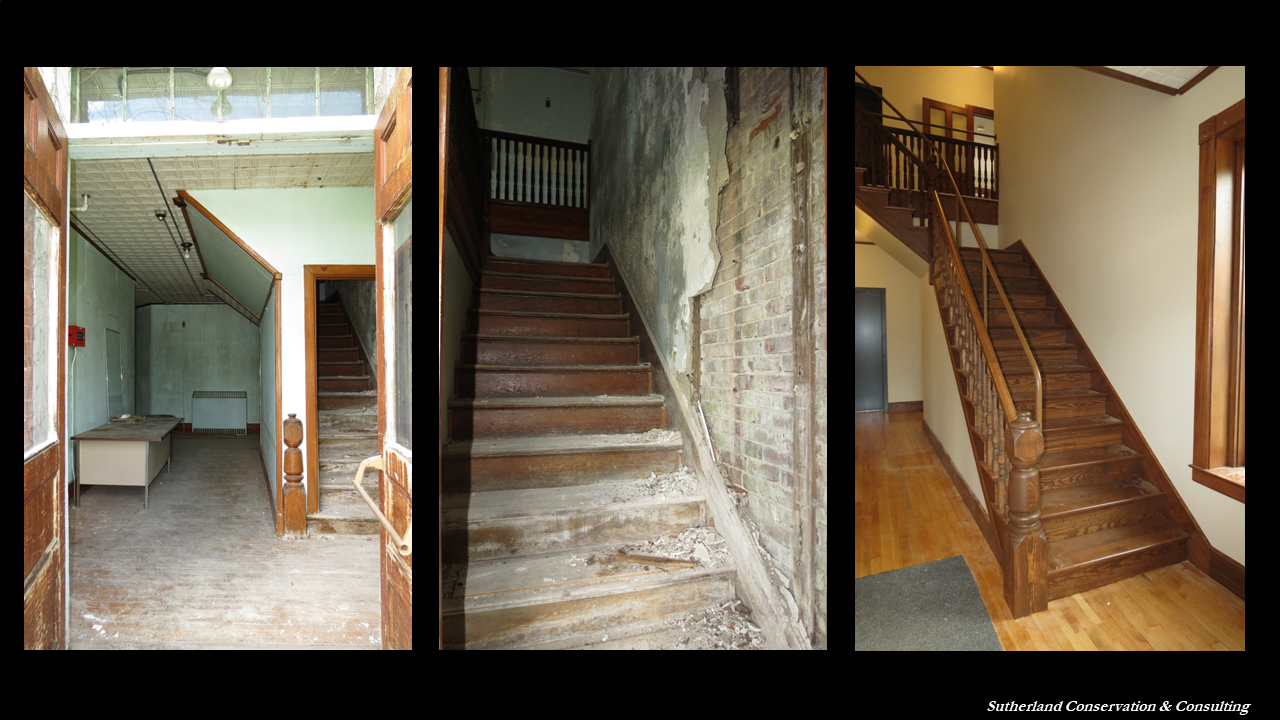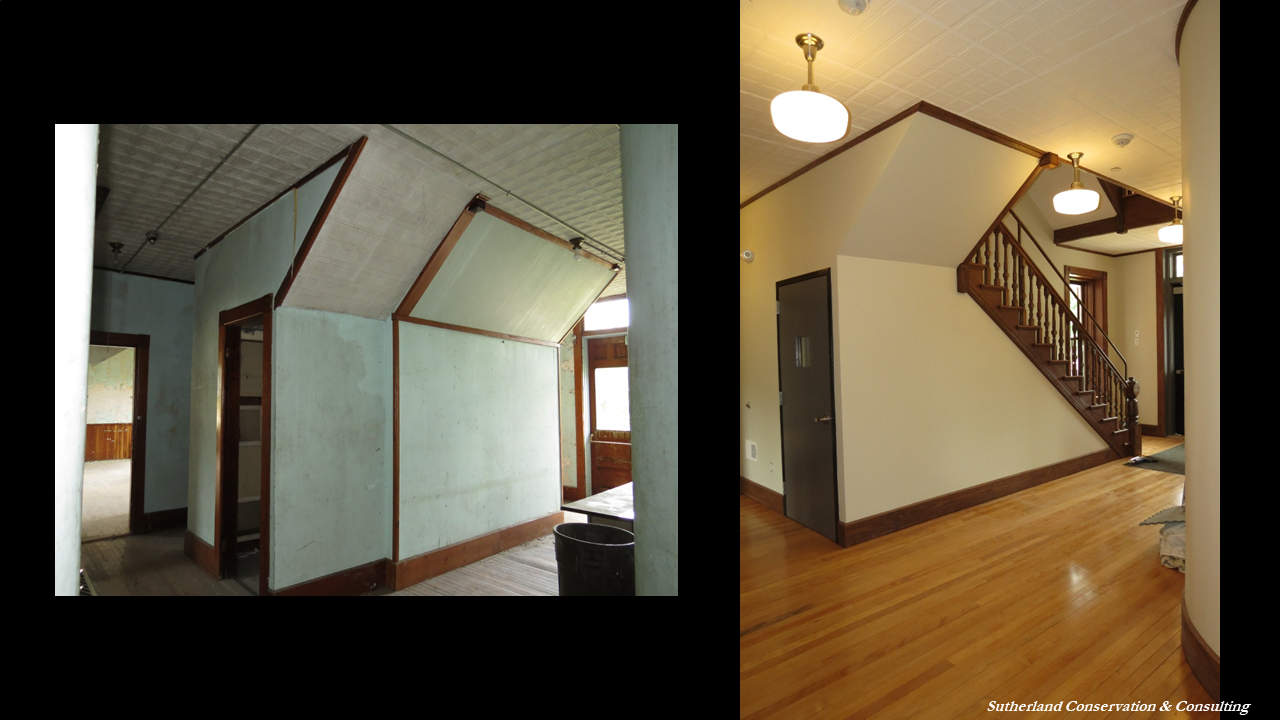Citation Video Project Team Highlights Video
The Maine Industrial School for Girls was founded in 1874 as a place where girls and young women who were considered a danger to themselves or a threat to society could be safely housed and given a moral, social, and academic education. Built in 1901-02 as part of the campus, Erskine Hall accommodated 26 girls in single bedrooms, along with their teacher, matron, and housekeeper on the first and second floors, with additional rooms in the attic. The residents lived and worked in the spacious brick building and had classes onsite.
Erskine Hall was renovated for state offices in the 1970s and then sat vacant for several decades, during which it suffered significant water infiltration through a failed integral gutter system. The water caused major structural issues with both the masonry walls and wood framing and destroyed hardwood floors, tin ceilings, plaster walls, and many of the windows. It also lost its two-story front porch. When the current owner took control of the campus building was in danger of collapse and was only saved for rehabilitation with stabilization work to the masonry and roof. At the start of the project, contractor Matt Morrill said, “it was probably one of the roughest buildings that I’ve ever dealt with.”
After the successful rehabilitation of the Stevens Building for University of Maine Augusta student housing in 2018 (a 2019 Maine Preservation Honor Award winner), the university was interested in creating more student housing on its campus and selected Erskine Hall for the project. The university’s willingness to commit to a long-term lease for the building made the rehabilitation project feasible. Other important people and institutions for the project were Ben Murray, architect-engineer; Grand View Builders, general contractor; Chris McLoon, tax attorney; Scott Hanson and Sutherland Conservation & Consulting, historic consultant; Katahdin Trust, and Coastal Enterprises, Inc.
The scope of work included major reconstruction of deteriorated and collapsing brick and granite walls, repair and replacement of rotted wood framing members, repair and compatible alterations to the slate and copper roof to prevent future issues with failed integral gutters, recreation of the missing two-story front porch based on historic photo documentation, installation of an elevator and fire-rated stair as required by code, reopening of the historic stairwell that had been enclosed during the 1970s, installation of new hardwood flooring and tin ceilings, and reinstallation of salvaged original wood trim elements and doors. A particularly challenging and unique issue was the removal of a robust hive of 80,000 bees from one wall of the building. This was accomplished by cutting away a section of the interior brick wall so a beekeeper could collect the bees from the wall cavity and relocate them to a new hive.
The result of this project is that the most deteriorated and threatened historic building on the Maine Industrial School for Girls campus has been beautifully rehabilitated and returned to use, again housing students as it originally did. The Erskine Hall rehabilitation project stands out on campus, even among previous preservation campaigns to nearby buildings. Given the structure’s severely deteriorated state, its rescue was the result of heroic teamwork.
Now beginning its first year as a residence hall, new obstacles relating to Covid-19 continue to shape its story and impact on campus, though the students who are living there are grateful for the unique and fulfilling opportunity of living in a historic home.
Project Participants
Matt Morrill, SC-Erskine, LLC / Grand View Builders
Ben Murray, A.E. Hodsdon Consulting Engineers
Chris McLoon, Nutter Lae
Coastal Enterprises Inc.
Katahdin Trust
Scott Hanson, Sutherland Conservation & Consulting



























